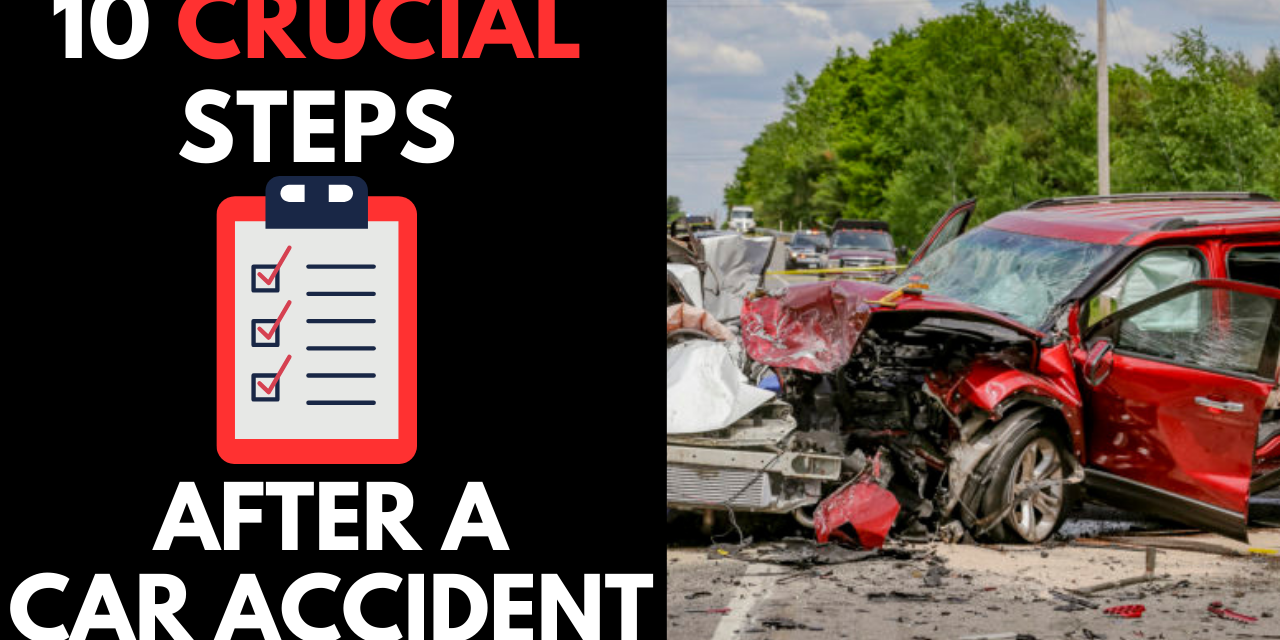10 Crucial Steps to Take After Being in a Car Accident: A Comprehensive Guide for Victims
Introduction
Car accidents are a common occurrence and being involved in one can be a harrowing experience. However, knowing what to do in the immediate aftermath is crucial for your safety and well-being. Here, we outline 10 crucial steps that every accident victim between the ages of 21-65 should take to navigate the aftermath of a car accident.
I. Stay Put and Call for Help
When you find yourself in a car accident, the first instinct may be to flee the scene out of fear or shock. However, it’s crucial to stay put and call for help. Never drive away from the scene of an accident. Wait until the police arrive and they let you know it’s safe to leave.
II. Call the Police
It’s essential to involve the authorities whenever there’s a car wreck. Not only does a police report provide a detailed account of the accident, but it can also be invaluable for insurance claims, legal proceedings, and medical purposes. The report may be requested by the insurance company, an attorney, or doctor.
III. Exchange Information
Once you’ve ensured there are no life-threatening injuries, exchange information with the other parties involved in the accident. Collect names, phone numbers, addresses, driver’s license numbers, license plate numbers, and insurance information. Don’t forget to gather information from all passengers involved as well.
IV. Stay Calm and Document
In the aftermath of a car accident, shock and adrenaline can cloud your judgment. Try to stay calm and focus on documenting the details of the accident accurately. Avoid speculating or guessing about what happened. Instead, write down or type out specifics of the accident for later reference.
V. Assess Injuries and Seek Medical Attention
Even if you feel fine immediately after the accident, it’s essential to assess your injuries and seek medical attention promptly. Some injuries may not manifest symptoms until hours, days, or even weeks later. Be honest about your condition, and if you’re unsure, it’s best to say so.
VI. Capture the Scene
In today’s digital age, almost everyone has a cell phone with a camera. Utilize this tool to capture images of everything related to the accident. Take photos of both vehicles, focusing on any damages. Don’t forget to document injuries as well, including those of passengers.
VII. Inform Your Insurance Company
Notify your car insurance company about the accident as soon as possible. Be transparent and honest about the details. If you’re unsure about coverage, inquire about MedPay or PIP options. Remember, Tennessee doesn’t require MedPay, but it’s still beneficial to understand your policy.
VIII. Seek Prompt Medical Care
Don’t delay seeking medical care for your injuries. Even minor pain or discomfort should be evaluated by a medical professional. Delaying care can not only prolong your healing process but also impact your case. Consider consulting with specialists like Dr. Roberts at Nashville Neck & Back, especially if you have concerns about motor vehicle collision injuries.
IX. Protect Yourself and Your Case
Be cautious about discussing the accident details with anyone other than the police, your doctors, and your insurance company. Refer all inquiries from other insurance companies to your attorney. Avoid agreeing to settlements or signing documents without legal guidance. Request damage evaluations and discuss them with your attorney.
X. Consult with a Personal Injury Attorney
Finally, seek guidance from a trusted personal injury attorney to navigate the complexities of your case. A knowledgeable attorney can provide invaluable support, advocating for your rights and ensuring you receive the compensation you deserve.
In conclusion, being involved in a car accident can be overwhelming, but taking these 10 crucial steps can help protect your interests and facilitate your recovery process. Stay safe on the roads and remember to prioritize your well-being in the aftermath of an accident.





